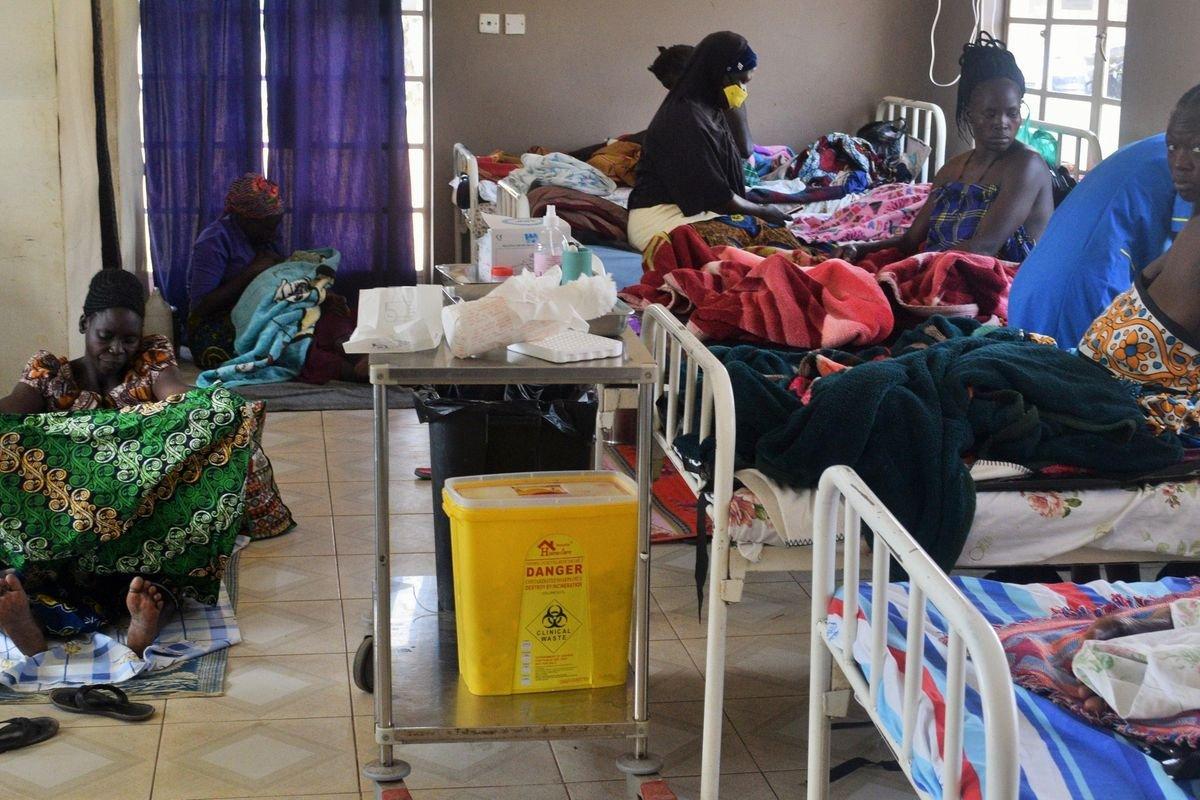Africa-Press – Uganda. Breastfeeding mothers and other activists yesterday asked the Executive and Parliament to increase paid maternity leave from 60 to 120 days.
Under Section 56 of the Employment Act, mothers are entitled to maternity leave for three months after delivery. Fathers are also entitled to paternity leave of not less than four working days after the delivery or miscarriage of the wives. However, some organisations give more days to male employees in case of emergencies.
During a press conference ¬in commemoration of the World Breastfeeding Week in Kampala yesterday, Ms Catherine Nankinga, a mother and an administrator at the Centre for Food and Adequate Living Rights (CEFROHT), said some companies do not provide breastfeeding spaces which mothers can use to take care of their children.
The World Breastfeeding Week will run from August 1 to August 7.
Ms Nankinga said increasing maternity leave days will give mothers ample time to breastfeed children for six months as recommended by the World Health Organisation.
The World Health Organisation recommends that babies must exclusively be breastfed from within the first hour of life and must continue up to six months to ensure proper growth and development of a baby.
Ms Nankinga, however, advised employers who are not ready to increase the maternity leave days to provide breastfeeding corners at workplaces.
Dr Doreen Mazakpwe, a mother and Founder of Naturally Nourish, said: “Enabling women to breastfeed should be at the heart of Uganda’s agenda to keep every child alive and to build healthy, smart and productive societies.”
She added: “Breastfeeding is among the most effective ways to protect maternal and child health and promote healthy growth and optimal development in early childhood.”
Dr Mazakpwe said breastfeeding within the first hour allows the baby to receive colostrum, a nutrient-filled fluid that boosts the baby’s immune system and guards against infections.
The spokesperson of the Ministry of Health, Mr Emmanuel Ainebyoona, said reviewing maternity leave is a policy matter that would require a wider discussion and a final decision made by Parliament.
“For now, they should work within those days provided in the Employment Act,” he said
The executive director of CEFROHT, Mr David Kabanda, said his organisation petitioned the Constitutional Court to review Section 56 of the Employment Act so that maternity leave days could be adjusted.
“We have opted to institute a constitutional petition to highlight the gap in the legal system and inconsistencies within the 1995 Constitution. Our main concern is Section 56 of the Employment Act, 2006 which provides for 60 working days as maternity leave but is silent on the extra months when a mother is expected to exclusively breastfeed her baby for six months,” Mr Kabanda said.
“The law should grant mothers a six-month paid leave to exclusively breastfeed their babies. If the government thinks that six months are too many, then it should push it to at least 120 days. Activists argue that Article 33 of the Constitution calls for the respect and protection of women as they perform their natural maternal functions in society,” he added.
He said about 39 percent of children are stunted which he blamed on poor breastfeeding.
Quoting figures from the population secretariat, Mr Kabanda told journalists that out of an estimated 5,000 babies born in Uganda every day, 44 percent are not breastfed in the first hour of birth while 35 percent of the children are not breastfed within the six months of development.
“This explains the high levels of malnutrition among children below five years. There are no enabling legal structures and environment to enable safe breastfeeding practice,” Mr Kabanda said.
The Programmes and Communications Manager of Southern and Eastern Africa Trade Informational and Negotiation Institute, Mr Herbert Kafeero, called for the establishment of breast milk banks.
Mr Kafeero said this would enable babies whose mothers are unable to produce enough milk to get access to breast milk.
For More News And Analysis About Uganda Follow Africa-Press






